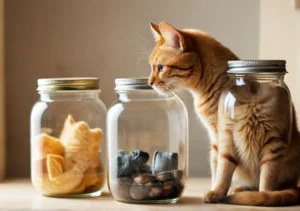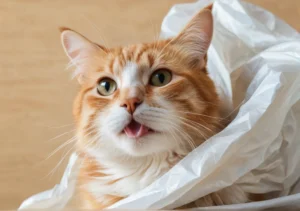Cats have a mysterious attraction to chlorine that often leaves pet owners puzzled. But why exactly are cats drawn to this chemical compound? Let’s delve into the intriguing reasons behind this feline fascination.
The Sense of Smell: How Cats are Drawn to Chlorine
Cats have an incredibly keen sense of smell, much more sensitive than that of humans. This heightened olfactory ability allows them to detect scents that we may not even notice. When it comes to chlorine, this chemical emits a distinct odor that cats find intriguing. In fact, some cats are naturally drawn to the smell of chlorine, which can be commonly found in household cleaning products, swimming pools, and even tap water.
The attraction to chlorine can be attributed to cats’ curiosity and their natural instinct to investigate new scents. Since chlorine has a strong, pungent smell, it can easily catch a cat’s attention and lure them in for further exploration. Additionally, some cats may be attracted to the smell of chlorine due to its similarity to pheromones or other scents that cats find appealing.
So, the next time your feline friend shows interest in that chlorine-scented pool water or freshly cleaned bathroom, remember that it’s their remarkable sense of smell leading the way!
An Evolutionary Perspective: Understanding Cats’ Instinctual Behaviors
From an evolutionary standpoint, cats’ affinity for chlorine can be linked to their natural instincts for survival. In the wild, cats rely on their sense of smell to navigate their surroundings, identify potential sources of food, and avoid danger. Chlorine, although not a natural scent in the wild, triggers a response in cats due to its chemical composition and distinct aroma.
Interestingly, some experts believe that cats may be attracted to the smell of chlorine because it reminds them of certain minerals or chemicals found in their natural environment. This evolutionary connection could explain why some cats are drawn to chlorine despite its artificial origins.
In conclusion, while the allure of chlorine may seem puzzling to us, it is rooted in cats’ innate behaviors and their finely tuned sense of smell. Embracing this unique aspect of our feline companions can deepen our understanding of their fascinating world.
The Curiosity Factor: Why Cats Investigate Chlorine in Everyday Settings
Have you ever noticed your furry friend showing a keen interest in items that contain chlorine, like bleach or pool water? It turns out that cats are naturally curious creatures, and their attraction to chlorine may stem from their inquisitive nature. Cats have a powerful sense of smell, and the distinct odor of chlorine can pique their curiosity, prompting them to investigate further.
Additionally, some cats may be drawn to chlorine due to its unique scent, which can be appealing to their sensitive noses. This curiosity can lead them to explore items containing chlorine, such as cleaning products or even your swimming pool. However, it’s essential to remember that while cats may be intrigued by chlorine, exposure to high concentrations of it can be harmful to their health.
So, if your cat seems particularly interested in chlorine-containing products, it’s essential to keep these items out of reach to prevent accidental ingestion or exposure. By understanding your cat’s natural curiosity and taking precautions to keep them safe, you can ensure a happy and healthy environment for your feline friend.
Tips to Keep Cats Safe Around Chlorine: 1. Store cleaning products containing chlorine in secure cabinets or high shelves. 2. Rinse off your cat if they come into contact with chlorinated water to prevent skin irritation. 3. Monitor your cat’s behavior around chlorine-containing items and seek veterinary care if you suspect ingestion or exposure.
Alternatives to Chlorine: Safe Substitutes for Cat-Friendly Environments
If you’re looking to create a safe environment for your feline friend without the use of chlorine, there are plenty of alternatives to consider. One popular option is hydrogen peroxide, which can be used as a natural disinfectant and is safe for pets when used properly. Another alternative is vinegar, known for its antibacterial properties and ability to neutralize odors. Additionally, essential oils like tea tree oil and lavender can be diluted with water to create a pet-friendly cleaning solution. Remember to always test any new cleaning product in a small, inconspicuous area before use to ensure it won’t harm your cat.
Safe Substitutes for Chlorine: 1. Hydrogen peroxide 2. Vinegar 3. Essential oils (tea tree oil, lavender) 4. Baking soda and water paste for scrubbing 5. Citrus-based cleaners for a fresh scent
By exploring these alternatives, you can maintain a clean and cat-friendly environment without exposing your feline friend to the potential dangers of chlorine.
Myth Busting: Dispelling Common Misconceptions About Cats and Chlorine
There is a common misconception that cats are attracted to chlorine due to its smell or taste. However, cats are actually repelled by the strong scent of chlorine and its harsh taste. While some cats may be curious about the smell of chlorine, it is more likely that they are simply investigating a new scent rather than being attracted to it. In fact, ingesting or coming into contact with chlorine can be harmful to cats, leading to symptoms such as drooling, vomiting, and difficulty breathing.
It’s important to keep chlorine-based products out of reach of your feline friend to prevent accidental exposure. Instead, opt for pet-safe cleaning products or natural alternatives to ensure a safe and healthy environment for your cat. Remember, when it comes to your cat’s health and well-being, it’s always better to be safe than sorry.
Interesting Trivia: Unusual Facts About Cats and Chlorine
Did you know that cats are often attracted to the smell of chlorine? This intriguing phenomenon can be seen when cats exhibit curiosity or even a desire to be near chlorine-containing products like bleach or pool water. The reasons behind this attraction are not fully understood, but some experts believe it could be due to the chemical components present in chlorine that cats find intriguing.
Another interesting tidbit is that some cats may be drawn to the warmth associated with chlorine-treated water, like that found in pools or spas. The combination of warmth and the unique scent of chlorine may create a sensory appeal for felines, leading them to investigate or even attempt to drink the water.
Despite this attraction, it’s crucial to ensure that cats are kept safe from direct exposure to chlorine, as it can be harmful if ingested or inhaled. Always store chlorine-containing products securely and prevent access to chlorinated water sources to protect your curious feline companions.
Expert Insights: Advice from Veterinarians on Cats and Chlorine
When it comes to cats and chlorine, it’s essential to be aware of the potential risks associated with their attraction to this chemical. While some cats may be drawn to the smell or warmth of chlorine, it’s important to keep them away from direct contact to prevent any adverse reactions or health issues.
Veterinary professionals recommend ensuring that any chlorine-containing products are stored securely out of reach of pets. Additionally, if you have a pool or hot tub, make sure that your cat does not have unsupervised access to the water, as chlorine exposure can be harmful to their skin, eyes, and respiratory system.
If you suspect that your cat has ingested chlorine or come into contact with chlorinated water, seek immediate veterinary advice. Symptoms of chlorine poisoning in cats may include vomiting, drooling, difficulty breathing, or skin irritation.
Remember, while cats may be attracted to chlorine, it’s crucial to prioritize their safety and well-being by minimizing their exposure to this chemical. By taking simple precautions, you can help keep your feline friends happy and healthy.
Alex, a passionate animal lover, has experience in training and understanding animal behavior. As a proud pet parent to two dogs and three cats, he founded AnimalReport.net to share insights from animal experts and expand his knowledge of the animal kingdom.




